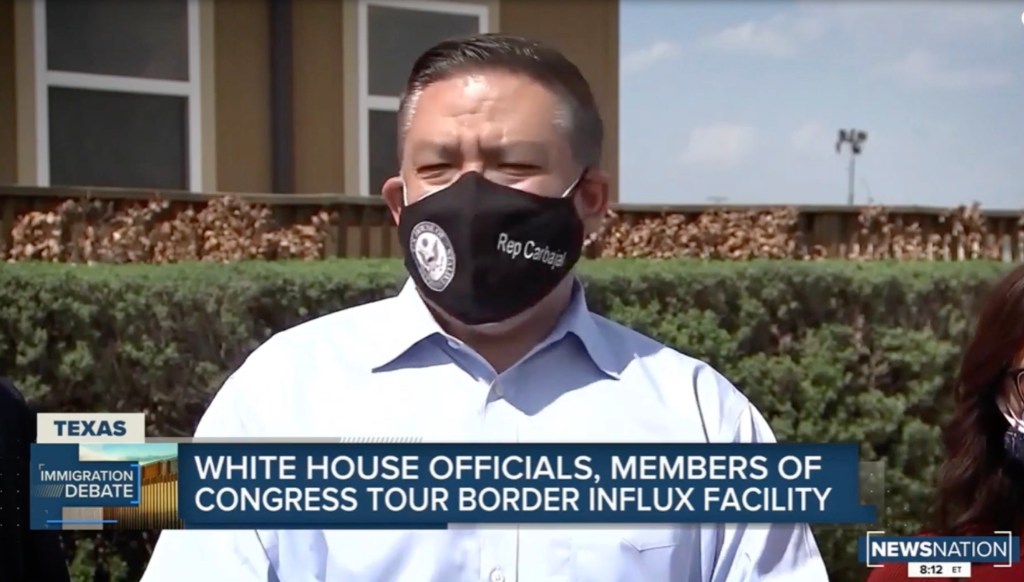Representative Salud Carbajal made a visit to Carrizo Springs, Texas, on Wednesday, where a camp about 20 miles from the U.S./Mexico border holds 766 children between the ages of 13 and 17 who entered the United States without a parent. He told pool reporters accompanying the group of five members of Congress: “We don’t need to have children in a facility like this. We need to expedite the process to make sure that those children are united with their guardians, their family members, and taken out of this facility as soon as possible.”
The Biden administration had been working “frantically” to provide more beds and bring staffing up to speed in the past two months, Carbajal said during a conference call on Thursday, but the children, mostly boys, were still there way too long. He had visited the camps set up in Tornillo, Texas, and Alamogordo, New Mexico, by the Trump administration, and unlike the tent cities at the other facilities, he said Carrizo Springs had buildings, dormitories with bunk beds, and bathrooms.
Get the top stories in your inbox by signing up for our daily newsletter, Indy Today.
Carrizo Springs can hold more than 900 children, but it has kept numbers lower to avoid crowding because of the pandemic, which also requires screening the children when they arrive and quarantining any who test positive for COVID-19. More robust services, such as physicals, medical services, and educational assessments, were provided quickly, Carbajal noted, as well as thorough background checks on all staff members.
About 80 percent of the children were awaiting reunification with relatives already in the United States, Carbajal said, while the rest would be placed in foster-care-like homes. He praised the willingness of the Biden administration to share information on the challenges they were having: “In the past, getting information was like pulling teeth.”
Carbajal said he believed the Biden administration was sending an appropriate message to Central America for children to not undertake the dangerous journey by reinstituting the Central American Minors program, which enables children to apply from their home countries to join their parents in the U.S. Biden’s proposed U.S. Citizenship Act, in addition to focusing on immigration and citizenship, would provide $4 billion in aid to Central American states “to root out corruption, violence, and poverty,” Carbajal said. The majority of the children held in the camps are from Guatemala (53 percent); 37 percent are from Honduras and about 7 percent from El Salvador.
Fluent in Spanish, Carbajal had spoken with some of the young people but had been warned to avoid questions that might trigger traumas from their dangerous journey. He noted that those who had volunteered for the conversation were nonetheless nervous, uncertain why the group of officials was there and wondering if they’d be sent back. They told him they liked the services and the food, and Carbajal, who asked if there was anything they didn’t like, said he heard no answer in the negative. Instead, the children told him that they’d come to the U.S. to get a better education and pursue a better way of life. He commented that those concerns were “synonymous with why most immigrants have come to our country since the inception of our country.”

